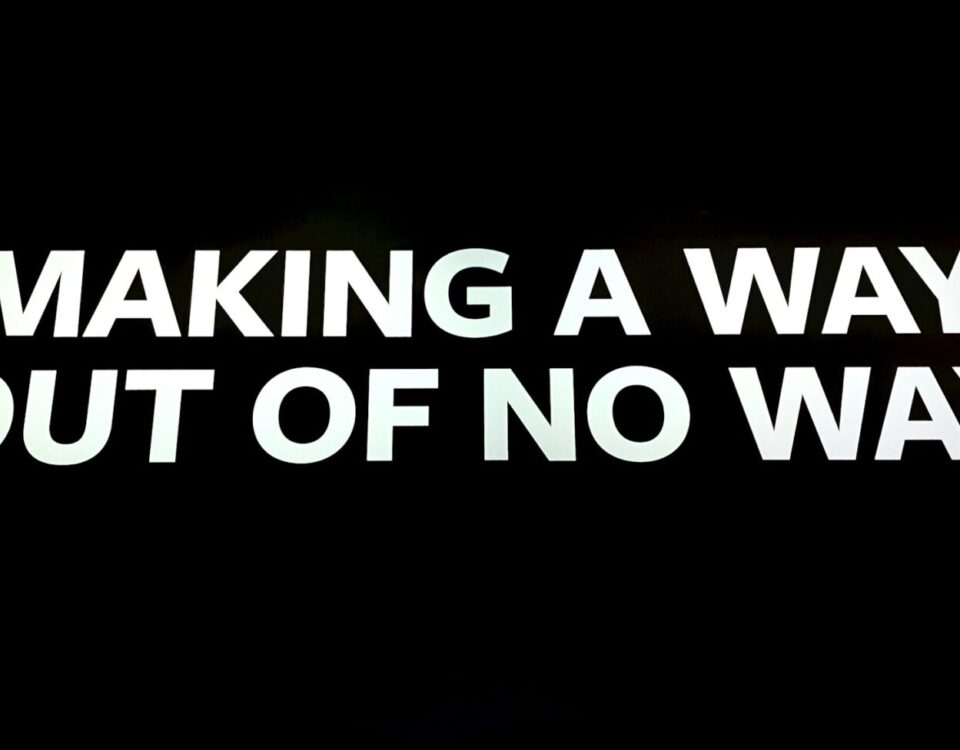
Where to Begin with Self-Advocacy
January 29, 2025
Self-Advocacy: Leveling Up
February 12, 2025Self-Advocacy is not easy. This series is meant to pull apart a complicated process so that you can consider the elements needed for effective self-advocacy. So far, the blogs have covered what self-advocacy is and isn’t and the most basic elements needed: everyday resources, an ability to ground, and a belief in your right to ask. The next three elements explored here are core to creating change. They are a specific goal or objective; knowledge about the system you want to change; and support. By naming the elements that are needed, you can consider how to strengthen your own approach or identify ways to support someone else.
The elements covered in this blog are core to the process of working with others to get your needs met. At some point there needs to be a specific goal or objective so that you can focus your energies. As you gain knowledge along the way, you increase your chance of success by learning about the systems you are facing. Support for you as a person, and for your goal, is vital to keep making forward progress.
Goals and Objectives
“I want my life to be better” is a wish, not a goal. “I want reliable transportation that meets my needs” is a goal. “I want the city to put a bus stop near my house” is a specific objective. Goals may shift or change as your advocacy progresses, but you do need to start somewhere specific. It is hard to narrow your efforts to one, or a few changes you want to see happen because there is so much about life that could be better. Identifying a clear focus allows you to concentrate your efforts to make a meaningful difference. It is worthwhile to take some time to choose an objective that is important to you, seems achievable, and is worth your time and energy. Spending time considering the next two elements will help you identify your goal.
Knowledge
When there is something you want to change, you need accurate information about how the system works. This includes both the formal rules and regulations and the informal processes that operate day to day. Sure, the handbook says to submit form x, but a conversation with a particular person may be more likely to result in change. Gaining knowledge is a process of both formal research – think library and/or internet and informal talking to people who have experience. For a long-term project you will likely benefit from taking notes and keeping records. Knowledge builds upon itself as you figure out more of the bits and pieces.
Support
Support is important every step of the way. Throughout the process you need a variety of people to give you a hand. You need people close to you who cheer you on and experts who share tidbits of knowledge. There may be allies who come alongside and support your efforts through a variety of means. It may be others on the same journey so that you can pool resources, brainstorm together or share wisdom. It may be friends and family who provide you with time and space to rest and rejuvenate. It might be people with authority or power who share information, make a piece of the puzzle work, unlock access to resources, change rules or bend policies to make progress possible. Support is vital for the process of change.
As we dig deeper into what makes self-advocacy possible these core elements are critical: you need a specific goal or objective, knowledge, and support. These intertwine like the strands of a braid. They work together as critical elements of self-advocacy. By naming them and considering how this element is, or is not, present in your approach, you are in a better position to consider how you can strengthen your plan. In this way you can take care of yourself in the present as you seek to create change for your future.
Peace,
Laura




